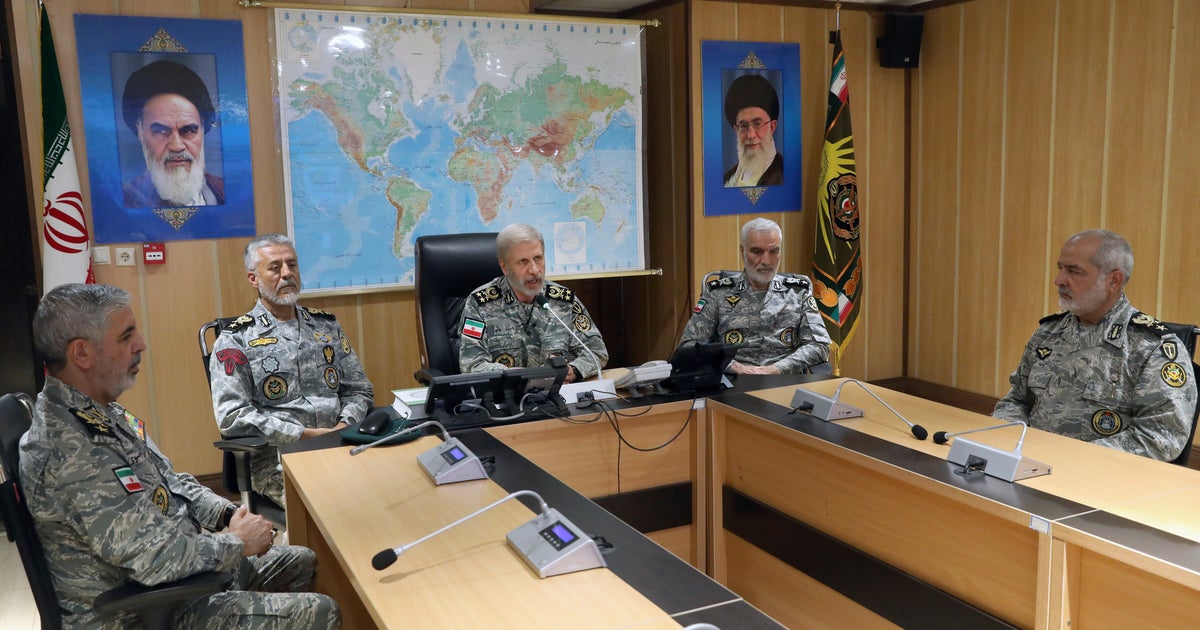In a significant escalation of military confrontations, Israel targeted Iranian governmental locations in Tehran on Monday. This series of airstrikes came as a response to Iran’s missile and drone attacks against Israel, which followed substantial U.S. airstrikes on Iranian nuclear facilities the previous day.
The Israeli military confirmed that its operations included strikes on roads near Iran’s Fordo nuclear enrichment site to hinder access. Fordo was one of the locations struck by the U.S. in their assault on three Iranian nuclear sites. Specifics on the damage or outcomes of these strikes were not disclosed by the Israeli military.
The Israeli Defense Ministry announced that among the attacked sites was the infamous Evin Prison, known for holding political detainees, including dual nationals. Additionally, the security headquarters of the Iranian paramilitary Revolutionary Guards was also a target.
“The Iranian dictator will be punished with full force for attacking the Israeli home front,” the Ministry stated.
Nuclear Concerns Intensify
In Vienna, Rafael Grossi, the head of the International Atomic Energy Agency (IAEA), indicated that the recent U.S. strikes expectedly caused significant damage to the Fordo facility. “Given the explosive payload utilized … very significant damage … is expected to have occurred,” he affirmed.
The U.S. strikes have plunged Israel into a deeper conflict with Iran, raising alarms about an escalation into a larger regional crisis. Iranian officials, including spokesperson Behrouz Kamalvandi, have alleged that Iran preemptively removed nuclear materials from the struck facilities.
Grossi informed the IAEA’s board of governors that Iranian Foreign Minister Abbas Araghchi had communicated on June 13 that Iran would implement measures to protect its nuclear equipment and materials. He emphasized the necessity for Iran to declare any movement of nuclear materials between safeguarded facilities.
Israel and Iran Continue Their Offensives
Iran characterized its missile assault on Israel earlier that day as a continuation of Operation “True Promise 3,” targeting major cities, including Haifa and Tel Aviv. While explosions were reported near Jerusalem, there were no immediate notifications of damage from these attacks.
In Tehran, local sources claimed that Israeli airstrikes affected areas surrounding the capital, with confirmed reports of a strike at Evin Prison. Iranian state media broadcasted what appeared to be surveillance footage of the attack, highlighting the prison’s role in Iran’s negotiations with Western nations.
Evin Prison has specialized sectors for political prisoners and those possibly holding Western ties, operated by the Revolutionary Guards, reporting only to Supreme Leader Ayatollah Ali Khamenei. The facility is not only significant for domestic politics but is also under both U.S. and EU sanctions.
After the Israeli strikes, Iranian General Abdolrahim Mousavi cautioned that the U.S. actions had granted Iranian forces a “free hand” to target U.S. interests in the region, where tens of thousands of American troops are stationed.
Global Calls for Restraint
The United States characterized its actions on Sunday as a singular measure aimed at curtailing Iran’s nuclear ambitions. However, President Donald Trump has indicated a readiness for further military action should Iran retaliate.
Mousavi condemned the U.S. strikes as an infringement of Iran’s sovereignty. In the aftermath of the bombings, there has been a growing chorus of international calls for de-escalation and renewed diplomatic engagement to diffuse the conflict.
European Union officials, including the bloc’s chief diplomat, expressed an ongoing commitment to finding diplomatic solutions. “The concerns of retaliation and this war escalating are huge,” said Kaja Kallas, as discussions focused on Iran occupied a central place in a foreign ministers’ meeting in Brussels.
Particularly, the potential for Iran to close the Strait of Hormuz—a critical corridor for global oil transport—remains a significant concern.
Iran asserts that its nuclear program serves peaceful purposes. Under a 2015 agreement with major world powers, including the U.S., Iran agreed to limit uranium enrichment in exchange for sanctions relief. However, following the U.S. withdrawal from the agreement during Trump’s first term, Iran has since escalated its uranium enrichment activities to levels close to those necessary for weapons-grade materials.
As the situation develops, German Foreign Minister Johann Wadephul reiterated the necessity for Iran to engage directly with the U.S. to foster a resolution, while emphasizing Europe’s supportive role in this process.
On Monday, Iranian Foreign Minister Abbas Araghchi met with Russian President Vladimir Putin in Moscow, as Tehran seeks to strengthen its alliances amidst escalating tensions.

